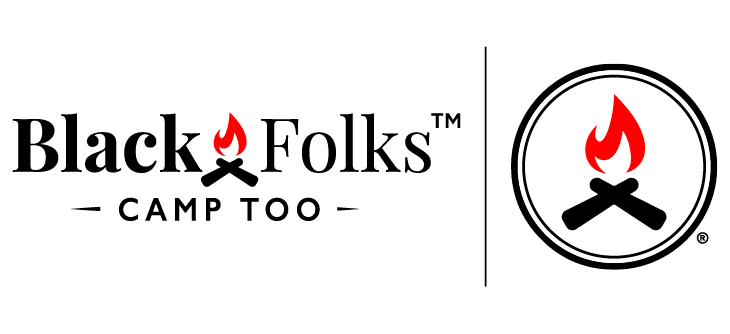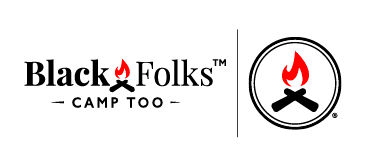Open Invitation
This article was written by Sahra Ali and originally appeared on SNEWS.com
I was born by the river in a little tent, oh, and just like the river I’ve been running ever since.” The words seem to fill the vastness around us, floating over the crash of Looking Glass Falls just beyond. “It’s been a long time, a long time coming, but I know a change gonna come…”
Earl B. Hunter, Jr. is many things: entrepreneur, hiker, father. Add singer to that list—one who isn’t afraid to launch into a powerful rendition of Sam Cooke’s “A Change is Gonna Come” right there at a trailhead in the Great Smoky Mountains within an hour of meeting me.
We were about to embark on an overnight backpacking trip on North Carolina’s Black Balsam Knob. Put simply, Earl’s job is to introduce others to the magic of the great outdoors, and though I’d hiked all over the U.S., this was my first camping trip. I’d grown accustomed to being the only Black thing besides a bear walking around in the wilderness; now, the best part about the experience was the prospect of camping with another Black person. I wasn’t nervous—instead, I felt at ease. Even in nature, it’s important to feel seen.
The business of Black Folks Camp Too
Every now and then as we hiked, I’d turn around and notice that Earl was not there. He was making friends everywhere we went, stopping to chat with each hiker we passed. Some already knew him: A woman came up to us and said, “I follow your company on Instagram.”
That company, North Carolina-based Black Folks Camp Too, is a marketing firm built around helping Black people feel at home outside. He works with outdoor adventure companies and brands to remove fear, educate, and invite Black folks outdoors. But unlike most other inclusivity efforts, it’s not a nonprofit—it’s a business. For Earl, it’s as much about closing an economic gap as it is about fulfilling a need.
“Every company wants to advertise their product,” Earl says. “I get asked, ‘How do we market to Black people?’ all the time by clients. I say to them, by virtue of consumerism, you are marketing to them, regardless. The real question is, what intentional efforts are you taking in your marketing plan to get your message across in a way that is not offensive?”
Public lands belong to everyone in this country, so everyone theoretically has access to outdoor recreation. But, as we all know by now, the outdoor adventure sector is overwhelmingly white. Earl’s approach centers around collaborating with brands and outdoor companies to acknowledge that. His clients reap an economic benefit by doing so—after all, the more diverse a company’s consumer base is, the more likely it is to grow.
Client education is a major focus for BFCT. Earl and his five employees conduct surveys and collect data about Black folks in the outdoors, then put together marketing strategies that can help companies reach Black consumers. The firm also consults on content creation and promotion that’s not merely performative. For example, BFCT has partnered with South Carolina State Parks, helping create ads and organizing Black group outings in conjunction with South Carolina State University. Both efforts aim to catch the eye of people who otherwise wouldn’t visit the parks. The South is a tough market for diversity and equity campaigns, Earl notes, so this initiative by the parks was especially meaningful.
Overcoming the fear
I heard one of Earl’s favorite phrases over and over as we hiked through groves of balsam firs, sunlight dipping in and out of the trees: “You have to go through something to get to something.” Our packs were loaded down with firewood and camp chairs, plus all the normal backpacking gear, and we were still hiking up the mountain when night fell and a chill set in. I could feel the muscles in my lower back and glutes tensing up. When we reached the top, I turned to hear, “Hey, you have to go through something.” Earl paused. “To get to something,” I sang out.
Perhaps the most compelling thing about BFCT is the invitation part of its mission. Earl recalls telling his white friends that the number-one deterrent for Black folks when it comes to the outdoors is not lack of finances or fear of insects. It is fear of white people. That’s a reality that many outdoor companies and enthusiasts are not used to hearing, let alone confronting.
Historically in America, the outdoors have not been a safe space for Black people. “The image of enslaved people running into the darkness of the woods and being hunted down by whites is not too distant of a memory here,” Earl says. “I grew up with my mother warning me not to go into the woods.” Given that specter of racialized violence, it’s not surprising why a Black person might not be enticed to explore the outdoors. To Earl, this is a tragic missed opportunity.
I found myself nodding my head as Earl told me this. My family thinks I am fearless for venturing out into the woods and making my life in gateway towns filled with white people. In reality, though I love the outdoors, I carry a quiet fear with me each time I set foot on a trail.
Earl sees his partnerships with the outdoor industry as a crucial way to help Black people feel safe outdoors. “We want to represent our clients’ brands in a delightful, accessible way,” he says. “The industry has already invested so much money in the gear and resources, it’s time to put some focus on education and reaching out.”

“The tone of the conference changed,” says Wes. “When Earl spoke about economic inclusion in the outdoors, we knew we wanted to be a part of the vision. We asked, “What can we do?” Earl’s answer was simple: “Invite me along to do an outing with you.” In May of 2020, seven months after officially launching BFCT, Earl found himself on a multiday excursion in Panthertown Valley in North Carolina.
“It was my first time hiking, let alone camping,” Earl says. “The soles of my sneakers came off and we had to tape them with duct tape. We trekked for ten miles after we set up camp.” But he loved every minute. “Wes and Andy did everything right,” Earl says. “They removed my fear, shared knowledge, and invited me. It showed me the BFCT model of overtly inviting people works.”
From Good Times to the Huxtables
Earl grew up in a predominantly Black neighborhood in Columbia, South Carolina, one of six kids raised by his single mother. He struggled to make good grades at his majority-white schools, but excelled at football and baseball. And his boisterous personality helped with his earliest business ventures. “I always like to have fun,” he says. “Even when I was a kid selling candy to my peers at school to financially help out at home, I was having fun.” After attending Georgia Military College on a football scholarship, Earl later graduated from Appalachian State, then took his first job as an account manager at Nokia. After a decade there, he moved on to various VP of sales roles, ultimately ending up at the RV company SylvanSport. “I am a Good Times kid living the Huxtable lifestyle,” he jokes.
But while he was used to being the only Black executive in the room at work, he didn’t fully appreciate how white the outdoor recreation world was until 2017, when he took his then-7-year-old son along on a road trip. They embarked on a three-month cross-country RV adventure, camping all over the U.S. and Canada and visiting 49 KOA campgrounds. Still, they saw only one other Black family with an RV during the whole trip. That experience, coupled with his extensive knowledge of the outdoor industry and his love for the outdoors, planted the seed for Black Folks Camp Too. Two years later, he left his full-time career as a sales executive to launch his own firm.
Unity around the campfire
Before I knew it, it was sunrise. We sat around the fire, watching the city of Asheville wake up far below. It was in the 20s, but our early-morning blaze conspired with the sun to produce a fleeting warmth.
We stared into the fire as Earl described creating the logo for Black Folks Camp Too: a simple image of two intersecting logs with a fire on top. He modeled it after two things: the blazes used as trail markers for hikers, and this feeling of sitting around a fire and connecting with others. BFCT makes stickers and patches with this logo, and they’re meant to send a strong message. If you see it in a store window, the logo communicates a store is committed to inclusivity in the outdoors. If you see it on a tent or someone’s backpack, you know that person is safe and friendly to everyone. (Granite Gear got on board last December with the release of the Unity Blaze Scurry Daypack, the first piece of gear to come with the logo.)
There are ample ways to show up. Folks all over the country are doing the work to make the outdoors more inclusive. As a diversity and equity consultant myself, I know this work intimately. Still, sitting by the fire with just a few hours left in our trip, the experience felt surreal. I’d come so far in such a short time.
I know we need more than just our willpower to hike up a mountain. Black Folks Camp Too wants to turn that will into action in a real, measurable way. As the sun beamed on us, glistening on our dark skin, I kept thinking about my own relationship with the outdoors and how Earl’s company affirmed it.
After breakfast, back at the trailhead, Earl put the Black Folks Camp Too sticker on my Subaru. He thought it made me official. In a way, it did. But little did he know, it also made me feel safe.











